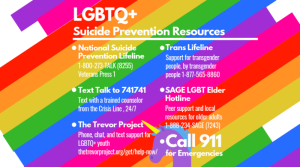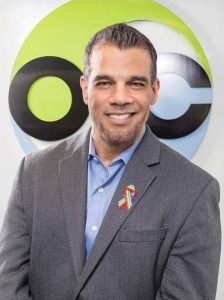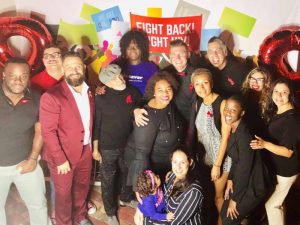What are Genital Warts?
- What are genital warts?
- What causes genital warts?
- What are the symptoms of genital warts?
- How are genital warts diagnosed and treated?
- Can I prevent genital warts?
Each year, more than 20 million people in the United States are diagnosed with sexually transmitted infections (STIs). While this number may seem staggering on its own, STIs are even more common than you might imagine—according to the statistics, more than half of all Americans are diagnosed with a sexually transmitted infection at some point in their life, with an increasing number of cases each year.
When we think of common STIs, chlamydia or herpes may be the first to come to mind. However, genital warts have one of the highest incidence rates in the country for men and women.
How likely are you to contract genital warts? While it depends, many sexually active Americans will–or likely already have been–exposed to the virus that causes this condition.
In this article, we’ll go over what genital warts are, their symptoms, and how doctors treat this common infection.

What Are Genital Warts?
Like other warts, genital warts are small growths or tags of fleshy tissue that develop on the skin’s surface. They appear on or around the genitals and can occur in both men and women, varying in appearance from flat to bumpy or rough to smooth.
Once transmitted through sexual contact, it can take weeks after the initial infection before they develop. Depending on their size, color, and location, cases of the infection can present obvious changes to the skin or more subtle differences that can be hard to recognize, especially when concealed by pubic hair. Unfortunately, these less pronounced cases of the infection often escape notice until more severe symptoms develop, leading to higher transmission rates.
In more severe cases, patients often notice clusters of cauliflower-like growths that are bumpy to the touch. Warts appear on the penis or scrotum in men and in or around the vaginal area or anus in women.
However, genital warts can spread to other parts of the body as well. Patients who have oral sex with an infected person can develop them on their mouth, lips, throat, or even on their tongue.
Unlike other warts—which are not transmissible through skin-to-skin contact—these infections do spread through direct physical contact, typically during sex.

What Causes Genital Warts?
Genital warts are caused by the human papillomavirus (HPV). There are close to 40 strains of HPV that affect the genital area, but only a few strains cause warts. Approximately 90% of genital warts come from HPV types 6 and 11.
HPV is incredibly common—in fact, the U.S. Centers for Disease Control and Prevention (CDC) reports that most sexually active people acquire some form of HPV during their life.
While the virus will often disappear on its own, some HPV strains lead to genital warts and other types can cause cancer. HPV types 6 and 11, which are responsible for genital warts, do not also cause cancer.

What Are the Symptoms of Genital Warts?
Not all cases of genital warts cause patients to develop warts. Other common symptoms of the infection also include:
- Genital bleeding during intercourse
- Burning
- Discomfort
- Itching
- Pain
- Vaginal discharge
Not all patients with the infection develop symptoms. While this may seem like a good thing, asymptomatic cases are quite dangerous, since patients without symptoms often continue to have sex, unaware that they may be threatening the health of their partners.
Treatment for genital warts can help control symptoms—however, it is still possible for patients to continue transmitting the infection, even after treatment. This can happen months or even years after doctors treat the infection.
Patients with genital warts can decrease their chances of spreading the infection by reducing stress and boosting their immune systems, which will suppress transmission rates.
Genital warts are an STI that illustrates another reason why it’s so important to always have safe sex if you have multiple partners. It can be a stubborn condition that lasts a lifetime—taking the appropriate action can protect those around you while keeping you healthy.

How Are Genital Warts Diagnosed and Treated?
There is no standard diagnostic test for genital warts. There is also no cure for the virus that causes the infection. To find out if you have the condition, your doctor will:
- Ask questions about sexual history (including unprotected sex)
- Physical exam
- Apply a mildly acidic acetowhite test to increase wart visibility
- Pelvic exam (women)
Genital warts may go away over time on their own—however, the HPV virus that causes them will likely remain in your body long after physical symptoms resolve. That means you may have additional outbreaks over your lifetime. Because of this, it’s important to manage your symptoms and practice safe sex to avoid spreading the STI.
On top of healthy sex practices, your doctor may recommend topical treatments:
- Aldara (imiquimod)
- Condylox (podophyllin)
- TCA (trichloroacetic acid)
For warts that don’t disappear on their own, your doctor may recommend surgery to remove them. This is typically a minor surgical procedure that could include:
- Cryosurgery (freezes warts)
- Electrocautery (burns warts)
- Excision (cuts off the wart)
- Interferon Injections
- Laser Removal Treatment
Never use over-the-counter wart removers. Genital and hand warts are very different, as are the medications used to treat them. Typically, the medications you buy over the counter are much harsher for use on the hands and feet and not to be used on the genital areas of the body since they can damage sensitive genital tissues.

How Can I Prevent Genital Warts?
HPV infections that cause genital warts are preventable. The best way to avoid an infection is by getting an HPV vaccine.
The HPV vaccine is safe and recommended for anyone who is or plans to be sexually active. The CDC recommends the vaccine starting at nine years old. Why? Because HPV, in addition to causing genital warts, also causes cancer. The HPV inoculation protects people from HPV infections that can develop into cancer later in their lives.
Genital warts are caused by a low-risk form of HPV. Other HPV strains are high-risk and linked to cervical, penile, anal, throat, and esophageal cancers. The HPV vaccine can help prevent these cancers as well as genital warts.
You can also prevent the condition by using a condom or dental dam every time you have penetrative or oral sex. The physical barrier blocks the spread by preventing skin-on-skin contact. While these can help, if you have an active case of genital warts, avoid sexual activity until the infection is under control.
Regular preventative exams with your doctor will not only protect you, but also prevent you from unintentionally spreading the disease to those around you.
For women, doctors conduct an internal exam to check your cervix for precancerous cells. For men, doctors perform a prostate and physical exam to identify symptoms of the infection and ensure the health of your immune system. These routine screenings are quick, easy, and protect you and your partners from the risks associated with STIs and sexually transmitted diseases (STDs).
Your sexual health matters. While STIs and STDs can be scary and frustrating, that shouldn’t stop you from getting the help you need to live healthily.
At Orlando Immunology Center (OIC), our team of experienced experts offers confidential support to help you take control of your sexual health, providing specialized care to relieve your symptoms and protect you from the risks of STIs.
More Articles
Dr. DeJesus Recognized by Orlando Magazine
For the 5th consecutive year, Dr. DeJesus has been recognized by his peers in Orlando Magazine for his work as medical director at Orlando Immunology Center. Dr. DeJesus is a graduate from the University of Puerto Rico, School of Medicine. He completed his Internal Medicine training and Infectious Disease fellowship at the Medical College of…
Read MoreJoin OIC at the 2015 AIDS Walk Orlando
Orlando Immunology Center is pleased to announce that we will again be sponsoring a team at this year’s 2015 AIDS Walk Orlando. If you are interested in joining our team or donating to this worthwhile cause, please let us know. Saturday, March 28, 2015 In Florida, 15% of all new HIV infections reported among females…
Read MoreOIC Wins Wave Award for Favorite Local Healthcare Professional
The Orlando Immunology Center (OIC) announced today they have received the Central Florida/Orlando 2015 Watermark Awards for Variety and Excellence (WAVE) Award for favorite local healthcare professional. “We see this as a huge honor and will continue to do everything in our power to help patients from all walks of life be healthy, happy and…
Read More“Let’s Talk About PrEP” Video Goes ‘Viral’
The fun and educational video about HIV prevention goes viral in the best possible way Howard Brown Health is one of the largest LGBTQ health organizations in the country and they just released this new song and music video, “Let’s Talk About PrEP,” to continue raising the visibility of pre-exposure prophylaxis (PrEP) in the fight…
Read MoreWorld Suicide Prevention Day Orlando
World Suicide Prevention Day (WSPD), on 10 September, is organized by the International Association for Suicide Prevention (IASP). WHO has been co-sponsor of the day. The purpose of this day is to raise awareness around the globe that suicide can be prevented. If you, or someone you love, needs immediate assistance, please call 911. …
Read MoreDr. Edwin DeJesus on Best Doctors List by Orlando Magazine
Dr. DeJesus was recently voted “Best Doctors 2018” by Orlando Magazine for the 8th consecutive year! The Best Doctors in America® List includes the nation’s most respected specialists and outstanding primary care physicians in the nation. These are the doctors that other doctors recognize as the best doctors in their fields. They cannot pay a fee and are…
Read MoreCentral Florida HIV Planning Council’s First Open House
Come to Central Florida HIV Planning Council‘s first Open House! Everyone is welcome and a light lunch will be served. The event is at Heart of Florida United Way on Tuesday, January 15th, 2019 from 11am to 1pm. The Central Florida HIV Planning Council (CFHPC) is a community planning body. It’s responsible for HIV prevention and care for Central Florida’s…
Read MoreOIC Highlighted on 2018 Best Doctors List
OIC Highlighted on 2018 “Best Doctors List” in Orlando Magazine for the 8th consecutive year! The Best Doctors in America® List includes the nation’s most respected specialists and outstanding primary care physicians in the nation. These are the doctors that other doctors recognize as the best doctors in their fields. It is a list which is truly unbiased…
Read More5 Martin Luther King, Jr. Quotes to Inspire Better Healthcare
Dr. Martin Luther King, Jr. teachings transcend civil rights. He was a an extraordinary leader. His speeches and writings are some of the most impactful ever written. Here are 5 Martin Luther King, Jr. quotes to inspire better healthcare. We hope they empower you to live your best life and create healthy change in your community.…
Read MorePlanning Council-Ending HIV Together
The Central Florida HIV Planning Council business meeting is tonight January 30th, 2019. Where: Heart of Florida United Way, 1940 Traylor Blvd., Orlando, FL 32804 When: January 30th, 2019 Time: 5:30pm – 6pm light food, 6pm-8pm Business Meeting Everyone is welcome to join! It’s truly a community collaboration of people ending HIV together! You don’t need a medical degree, you…
Read MoreContinuing the NBHAAD Conversation
We are continuing the NBHAAD conversation and following up on our 2018 blockbuster Facebook Live Event. Last year for National Black HIV/AIDS Awareness Day (NBHAAD) we assembled powerhouses in HIV education, prevention, medical care and advocacy to discuss the most important issues facing the community. This year we are continuing the NBHAAD conversation because the…
Read MoreStay Healthy All Year – NBHAAD Health Resource Guide
Stay Healthy All Year with this NBHAAD Health Resource Guide. It’s Orlando’s ultimate 2019 NBHAAD health resource round up. On February 7th we marked National Black HIV/AIDS Awareness Day (NBHAAD) but one day is not enough for this important issue. So we created this quick reference guide with HIV facts, what you can do plus tons…
Read MoreFree Condom Locations in Orlando – International Condom Day 2019
These condoms are free because the protection they provide is priceless. Check out all the free condom locations in Orlando for International Condom Day (ICD) 2019! AIDS Healthcare Foundation (AHF) started ICD February 13, 2009. It’s an entire day to celebrate sex with condoms! You can greatly reduce the risk of STIs including HIV, HPV…
Read More











